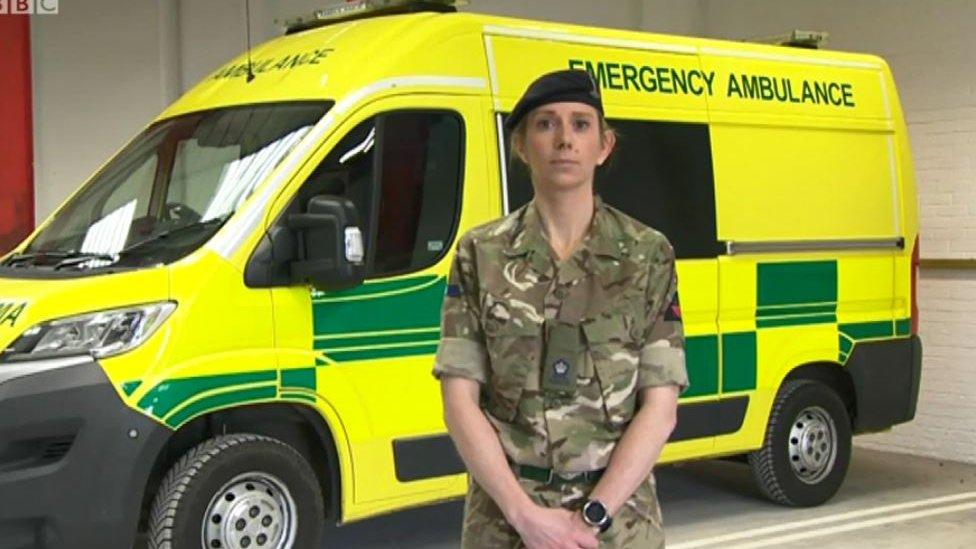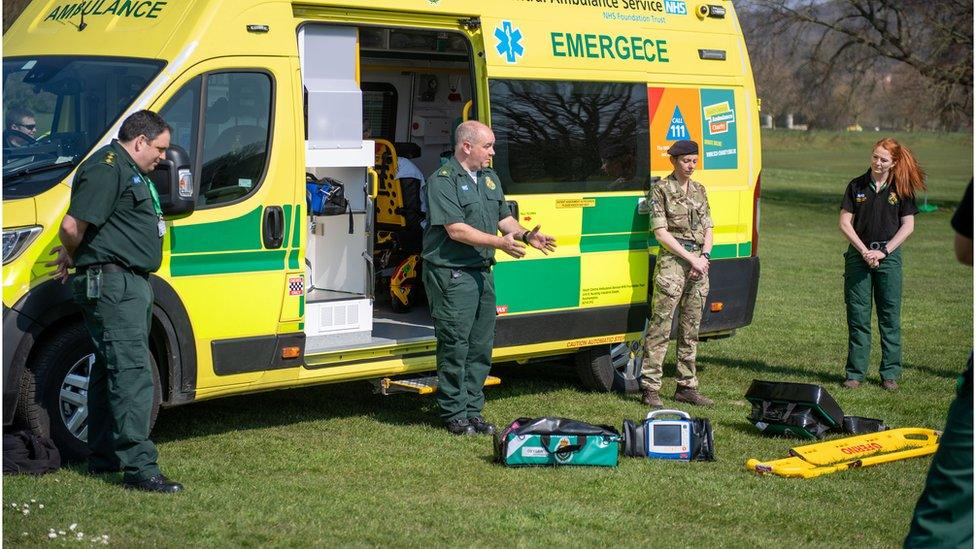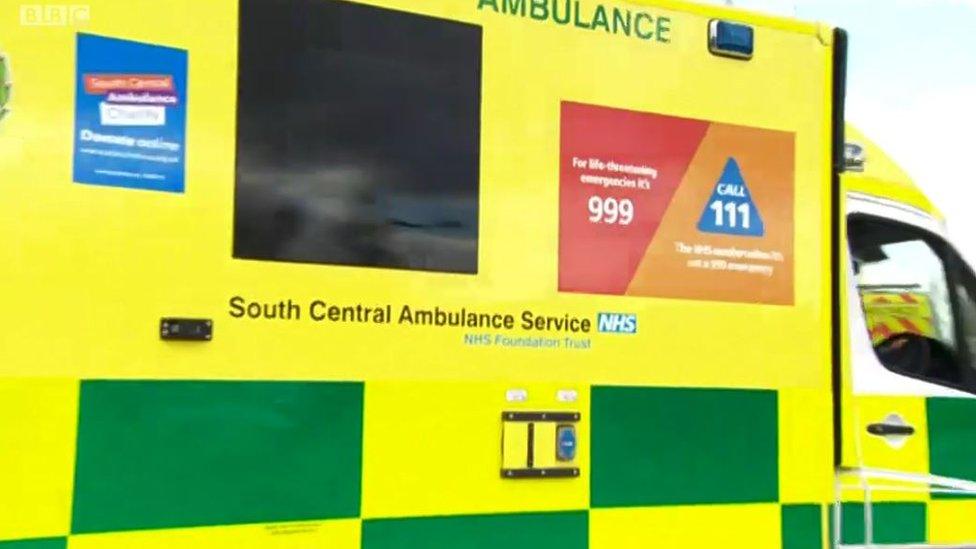Coronavirus: Military help South Central Ambulance Service
- Published

South Central Ambulance Service will be able to provide 20 to 30 more ambulances a day
The British military has been deployed to help an ambulance service cope with an expected increase in demand due to the coronavirus outbreak.
Eighty members of the armed forces have been drafted in to drive response vehicles and take calls for South Central Ambulance Service (SCAS).
The service covers Berkshire, Buckinghamshire, Hampshire, Oxfordshire, Sussex and Surrey.
SCAS said the extra support would help provide 20 to 30 more ambulances a day.
A spokesman said the extra ambulances on the road would be a 10% increase on its normal 180 to 200.
He said: "Training has commenced this week to give emergency driver training so they can drive ambulances, as well as PPE training so they know what level they have to wear to different incidents.
"Once they are through that training, the majority will go on road as well as in the control room which is in demand."

The 80 soldiers and other armed forces personnel were already volunteers for the ambulance service in their off-duty time
The 80 personnel, from all three services, were already volunteer co-responders and have backgrounds in hands-on medical response, the Ministry of Defence (MoD) said.
Major Emma Allen said: "I think it is going to be challenging.
"We've got soldiers spread all over the SCAS area of responsibility and they are really looking forward to working with the NHS and providing front-line care."
SCAS said it had 400 to 500 staff off work isolating from its 3,300-strong workforce, but the military personal were aimed at helping to cope with the expected increase in coronavirus cases.

SCAS serves a population of seven million residents
The ambulance service said it was keen for coronavirus testing to be made available as soon as possible.
Operations directors Mark Ainsworth speaking to the BBC said: "One of the main pressures at the minute is the number of staff we have absent from work either through symptoms or family having symptoms that's causing pressure on our service delivery.
"It's key we get all critical staff in service delivery tested and back out operational as quick as we can."

A SIMPLE GUIDE: What are the symptoms?
AVOIDING CONTACT: Should I self-isolate?
MAPS AND CHARTS: Visual guide to the outbreak
